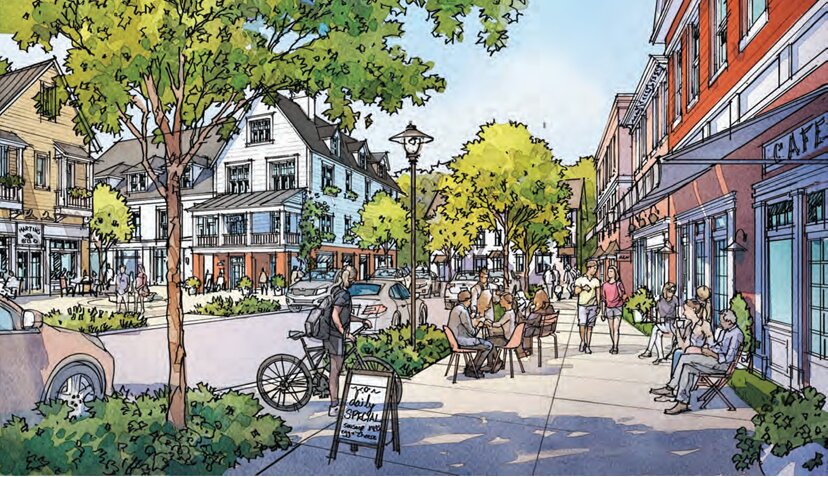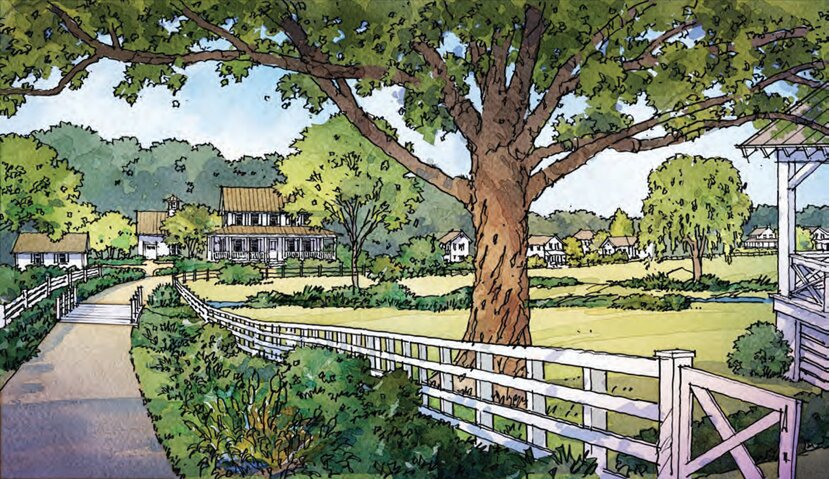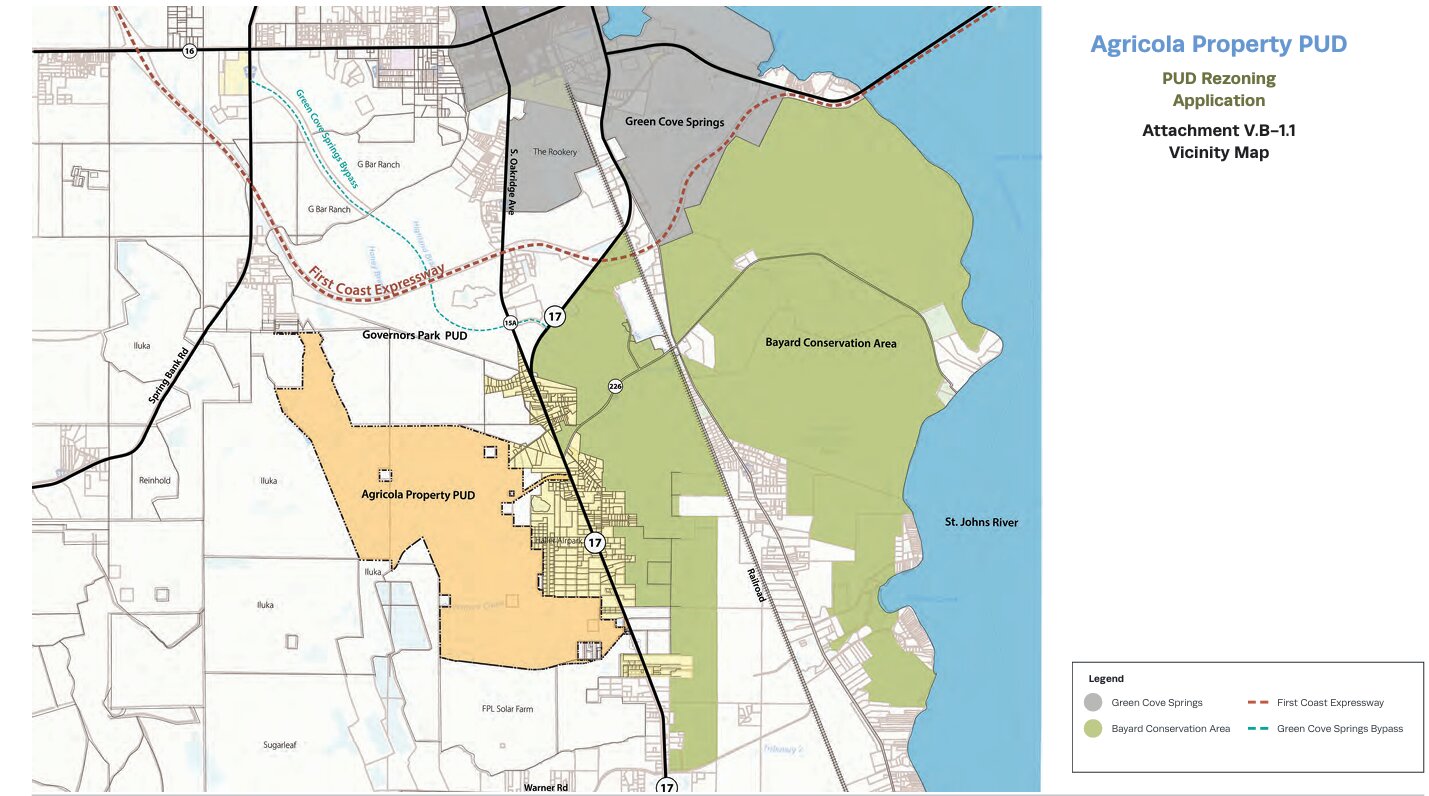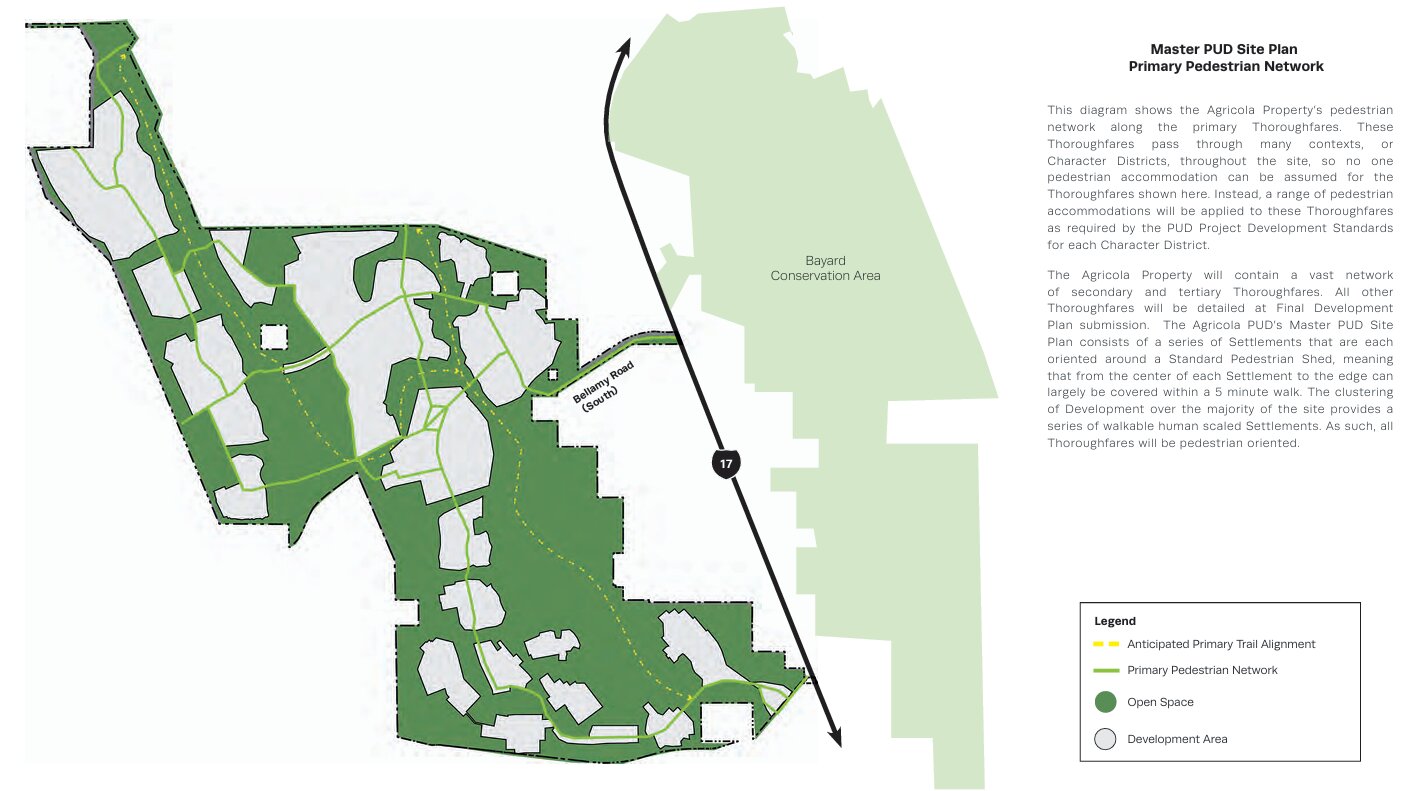Sowing the seeds to rezone the Agricola Property
Agricola team smooths concerns at BCC workshop
jack@claytodayonline.com
GREEN COVE SPRINGS – The highly anticipated, highly ambitious Agricola Property is one step closer to breaking ground after smoothing some concerns during a workshop last Tuesday. The …
This item is available in full to subscribers.
Attention subscribers
To continue reading, you will need to either log in to your subscriber account, below, or purchase a new subscription.
Please log in to continueDon't have an ID?Print subscribersIf you're a print subscriber, but do not yet have an online account, click here to create one. Non-subscribersClick here to see your options for subscribing. Single day passYou also have the option of purchasing 24 hours of access, for $1.00. Click here to purchase a single day pass. |
Sowing the seeds to rezone the Agricola Property
Agricola team smooths concerns at BCC workshop
GREEN COVE SPRINGS – The highly anticipated, highly ambitious Agricola Property is one step closer to breaking ground after smoothing some concerns during a workshop last Tuesday.
The property has to be rezoned before there can be any development. At the workshop, Agricola made its pitch for why it should be rezoned from “agriculture” to “planned community.”
“Our guiding principle is to create a complete community – parks, homes, healthcare, places to work, retail, agriculture, schools, churches,” said Brian Wright, a consultant for Agricola.
“We want to be good stewards of the land and environment… that’s the reason we’re doing this in the first place,” he said.
Agricola aims to be not merely a neighborhood, but an “agri-hood.” The community has a unique commitment to fostering environmental sustainability and a rural character.
That commitment has some weight behind it, too, since Agricola’s development agreement ensures the community must follow through on its promises.
“The PUD (planned unit development) and binding agreements prevent a ‘bait and switch,’” Wright said.
“This may be the most thorough rezoning application in the county,” he said.
The Planning Commission joined the Board of County Commissioners to offer comments and ask questions about Agricola’s comprehensive plan, which had recently received feedback from state agencies.
Planning commissioner Ralph Puckhaber expressed concern regarding Agricola’s conversion tables, which would allow the community to pivot to develop more residential and less commercial real estate.
“I have seen how conversion tables are used to absolutely change the complexion of the project from what it is supposed to be,” Puckhaber said.
“The fact that you’re willing to at least put a cap (of 500 units) on that partially alleviates my concern,” he said.
“Any project over 30 years definitely needs a conversion table in order to stay flexible to the market,” said a spokesperson from Agricola.
The spokesperson said the “cap,” as per the development agreement, would only allow 500 units of nonresidential property to switch to residential.
“We have heard this before, ‘live here, work here.’ So, thank you for (implementing the cap),” said Pete Davis from the PC.
Agricola’s comprehensive plan was reviewed by several state agencies – St. Johns River Water Management District, Florida Fish and Wildlife Conservation Commission, Florida Department of Transportation, Florida Commerce and more.
SJRWMD and FDOT expressed no concerns.
FWC had no objections either but offered some feedback.
"A wildlife assessment was not provided with the amendment documentation," according to the FWC report.
An analysis by FWC found the Agricola property could be near the habitats of the gopher tortoise, the little blue heron and possibly even the Florida black bear due to the vicinity of the Bayard Conservation Area.
"The FWC has received 34 reports of human-bear conflicts within a 5-mile radius of the project site since 2014," according to the FWC report.
This concern was echoed by Davis, who asked the Agricola team how they would address black bears or other wildlife roaming the rural community.
The Agricola team said they would follow the guidelines the FWC suggested, such as providing bear-resistant garbage containers. Additionally, wildlife corridors would remain interconnected to maintain habitat connectivity. After all, it’s better for wildlife to pass through natural corridors than through someone’s property.
Following the question-and-answer section, the PC was reassured that Agricola would incorporate the constructive feedback.
“Clay County deserves a really good development. I am looking forward to seeing the project evolve,” said Bill Garrison.
“I am impressed with the research and planning that has gone into this. I am particularly impressed and heartened by the commitment for 50% of the development to go to green space. I personally have never heard that in my years on the commission,” said Mary Bridgman.
It appeared the BCC shared a similar positive sentiment as it, too, asked Agricola some questions.
“I love your development,” said Commissioner Kristen Burke, whose district the Agricola Property would develop in.
“I love all the attention to detail. One negative that comes to mind is I wish this development came years before the others I see right now – because I would have lived in it, actually,” she said.
Burke asked about Agricola’s relationship with nearby Haller Airpark. A representative from the airpark came up to the podium later in the meeting.
“They’ve been out (to the airpark) numerous times. Their green space is our downwind. I don’t think we’ll have any complaints. They’ve been open from the very beginning,” the representative said.
Burke asked about the flooding concerns residents addressed at a previous BCC meeting.
Christof Agricola responded, affirming his commitment to developing sustainable stormwater infrastructure with the Clay County Utilities Authority.
Burke asked about the community’s plan to provide school options.
The Agricola team responded with a commitment to pay impact fees and to convey 40 acres of land for a future school site.
The BCC and PC commended the Agricola team for the commitment to its vision to create an integrated, walkable agrarian community.
Noteworthy, too, is the steps Agricola is taking to get there. The team has collaborated with state and local agencies and has found ways to incorporate suggestions along its development.
If its rezoning application was approved, Agricola would begin development in the northeast corner of its property, the closest along U.S. Highway 17. Agricola is eager to show a successful proof of concept that interested residents and businesses can buy into.
The 30-year development is planned to accommodate about 4,000 residential units, and Agricola estimates it will provide over $236 million in ad valorem revenue for Clay County.
After the workshop, Agricola said he was excited about the commercial opportunities from the community farms. Farm-to-table restaurants could spring up and take advantage of the nearby produce. Agricola expressed interest in hosting an agricultural technical college and using the community farms to partner with career, technical and education programs at Clay County District Schools.
Of course, this is contingent on the property being approved for its rezoning. The BCC will make that decision during its regular session meeting on April 23.
Once rezoned from agriculture to planned community, Agricola will be free to "plow ahead" as long as nothing else “crops up.”
















